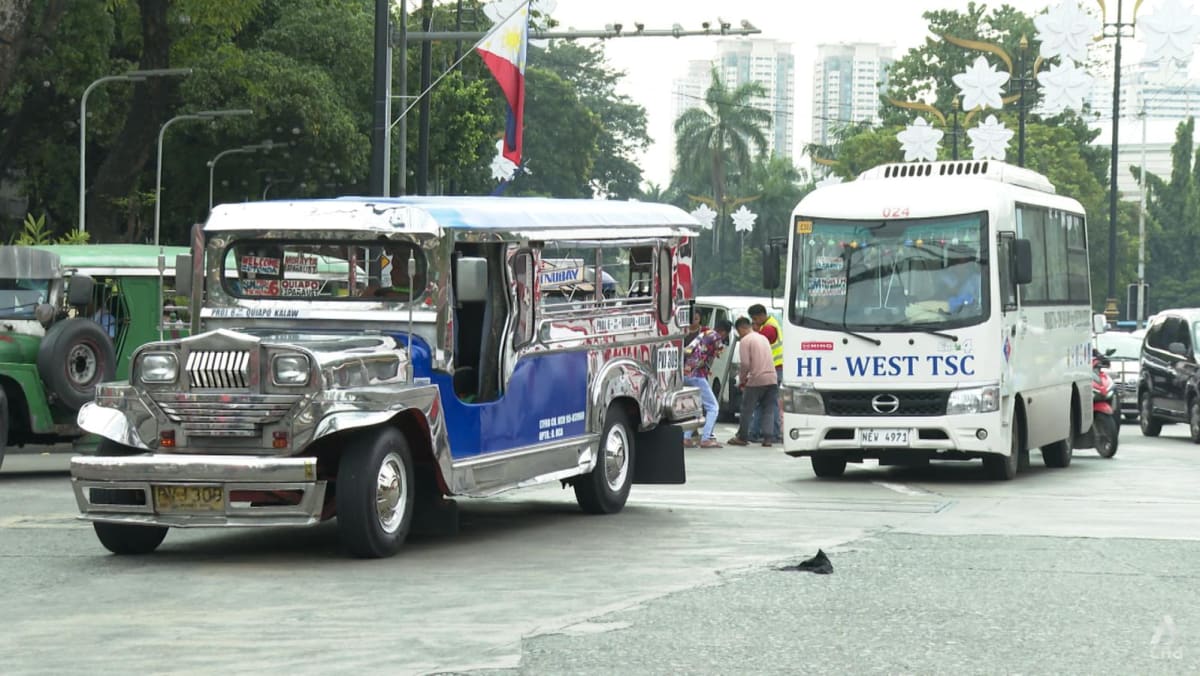
The subsidy goes straight to the cooperative as capital shares of the jeepney owner, who transitions from being a small enterprise owner to a cooperative investor.
Some jeepney owners who drive their own vehicles can also receive additional daily pay in a cooperative by becoming the driver of a modern jeepney unit.
Pandacan Transport Cooperative chairman Edmundo Cadavona told CNA a collective arrangement is better for jeepney operators, as they no longer need to worry about maintaining their vehicles.
“The new vehicles are safe, comfortable, air-conditioned and produce less emissions with their Euro 4 engines,” Mr Cadavona said.
TRANSITIONING TO THE FORMAL SECTOR
Drivers who do not own jeepneys are hired by cooperatives with fixed daily salaries, as opposed to the profit-sharing scheme of traditional jeepneys, essentially transitioning them to the formal economy.
The cooperative also remits directly to the state each driver’s monthly premiums for their social security and state health insurance. The amount is paid by employers and salary deductions.
However, many traditional jeepney drivers who live hand to mouth remain sceptical, as they feel the amount of take-home pay is better under the traditional scheme.
The social security benefits of a traditional jeepney driver are paid voluntarily, if at all, with many retiring with no pension.
Others in the informal economy who make a living through the popular form of transportation are similarly worried. These include workers who call out for passengers, known as “barkers”, or who help to park the vehicles, known as “starters”.
